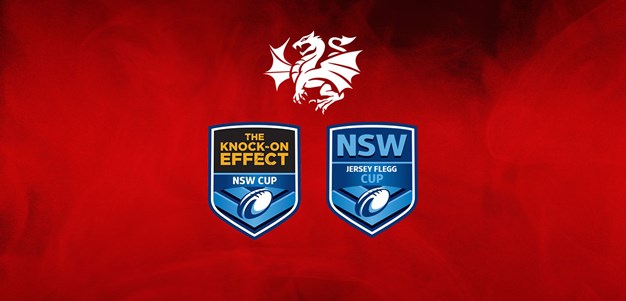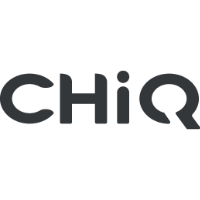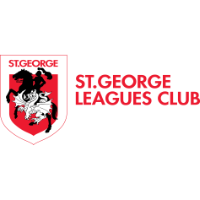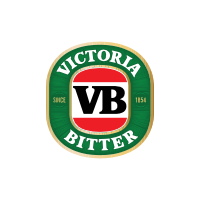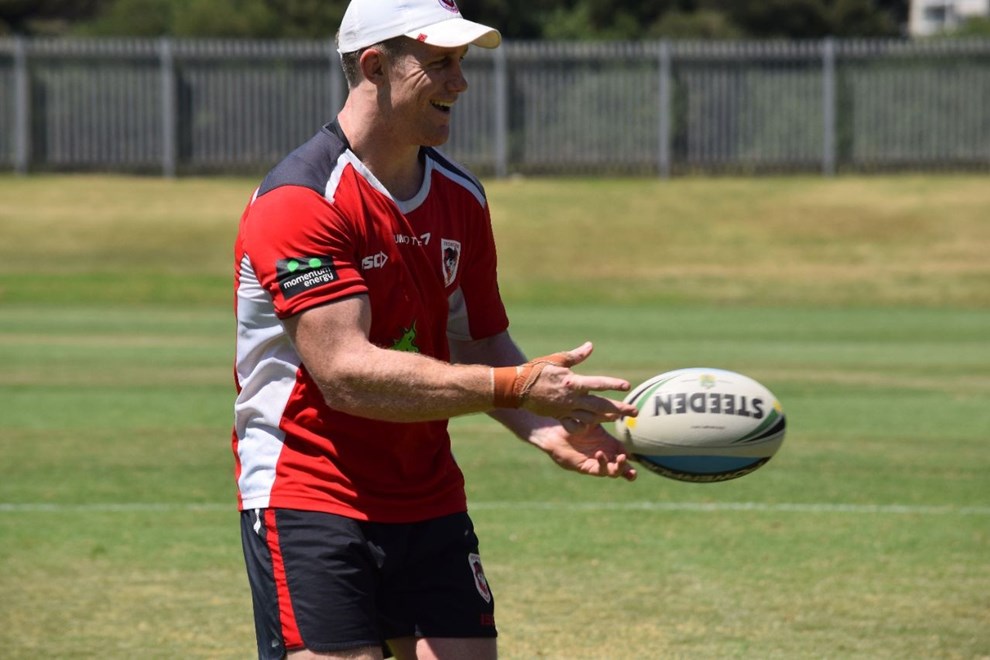

By Jack Brady (NRL.com)
St George Illawarra club captain Ben Creagh is on the comeback trail after two knee surgeries in the past seven weeks threatened to prematurely end his career.
Creagh damaged the cartilage in his knee in the Dragons' Round 3 win over the Rabbitohs which rid him of his ability to run.
Click Here To Become A Red V Member And March With Us In 2016!
Complications following the first surgery meant Creagh had to go under the knife once again a couple of weeks ago, and while his knee is on the mend there is currently no slated return date.
"Between the first and second surgeries, with all the dramas I was having with the knee, I was a bit worried [about having to retire] but since the second surgery it's responded really well," Creagh told NRL.com at the newly-name UOW Jubilee Oval.
"I'm not too worried about it now. I'm just focused on getting my rehab and recovery right. Since [the second surgery] it's improved a lot.
"There's no timeline yet but I'm doing everything right now to get my leg strong again, get fit and get running so I can hopefully be back playing again soon."
Creagh was speaking at Monday's announcement that the partnership between the Dragons and the University of Wollongong will extend through to 2017.
The former NSW forward is a UOW alumni and played a huge role – along with senior lecturer Dr Sam Jebeile – in establishing the acclaimed Graduates of League program.
Creagh led the successful GOL pilot program back in 2012 and it has since expanded across every club in the NRL and 18 other universities across Australia.
There are currently 17 Dragons players enrolled at UOW while others from the Sharks, Panthers, Hockey Australia and Cycling Australia are also involved.
"[Dr Jebeile and I] wanted to figure out why players would enrol and not finish [their degree] and also figure out how we can fix it because we wanted more players to finish," Creagh said.
Click Here For Round 10 v Canberra Raiders Game Day Information!
"[The GOL program] encourages players to enrol in universities and give them confidence to take it on now because they know there's help there.
"The help they're getting, they're not getting babied along and people aren't doing assignments for them. It's help with catching up on tute work that they missed out on because they were at training or had to play. It's time management and so many other things that players need help with and it's great across the board – they're doing really well.
"Four-and-a-bit years on, I would've laughed if you told me at the beginning that it would've come to this. We didn't know how the players were going to respond or if they would have cared."
The benefits of the GOL program have been made more apparent for Creagh recently, considering talk of how his knee injury would impact his career.
While Creagh finished university in 2013 with a Bachelor of Commerce, his current injury troubles have been a reminder of how easily a rugby league career could be over.
"It's why the 250 players across the NRL are currently studying. They know their footy career is going to end one day," Creagh said.
"Unfortunately in some cases it can end at very young ages because of injury or even due to form and being overlooked, so the program is opening more possibilities for life after footy."

